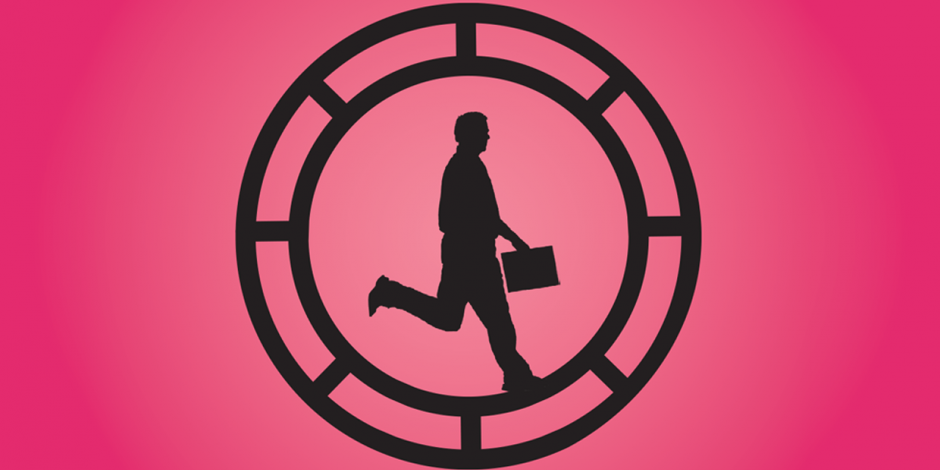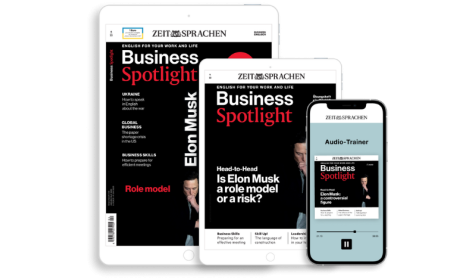Starten Sie den Audio-Text
Mit dem Audio-Player können Sie sich den Text anhören. Darunter finden Sie das Transkript.
David Ingram: Good morning, Tenley. How have you been?
Tenley van den Berg: All right, I guess. But it seems as if all I do these days is work, work, work.
Ingram: I know what you mean. As soon as I finish doing one thing, there’s something else right behind it. And when I’m working from home, I find it hard to switch off at the end of the day — sometimes, it feels as if there is no end of the day!
van den Berg: I’ve always thought that we modern humans must work relatively little and have lots of free time compared to when we had to hunt and gather food to survive. Apparently, that assumptionAnnahmeassumption is completely wrong! In the 1960s, researcherForscher(in)researchers reported that the Ju/’hoansi tribe(Volks-)Stammtribe in Namibia, one of the last foraging societyWildbeutergesellschaftforaging societies, spent only about 15 hours a week finding food. Most of their time was spent resting or having fun! If they had surplusüberschüssigsurplus food, they would share it. They enjoyed a very equal society.
We create work for ourselves, partly because we have an innate drive to keep ourselves busy
Ingram: In our society, however, we work for the rewardBelohnungreward at the end, right? That’s why we work so hard.
van den Berg: That’s what we would all like to believe. In 2020, an anthropologist named James Suzman wrote a book called Work: A History of How We Spend Our Time, in which he to challenge sth.etw. infrage stellenchallenges many ideas we have about our relationship with work. He thinks that it’s time we realize that much of the work we do in the modern world is meaningless — we create work for ourselves, partly because we have an innateangeboreninnate drive to keep ourselves busy. He says that our need to work has been hardwiredfest verdrahtet; hier: tief verinnerlichthardwired over time even as our main motivation switched from survival to financial capital. He also thinks that the emergenceAufkommen, Entstehenemergence of cities — and, more recently, social media — has made people greedygieriggreedier.
Ingram: Does he have any thoughts about how we can free ourselves from creating this cycle of endless work?
van den Berg: Suzman thinks the Covid-19 pandemic might be an opportunity to change our relationship with work. For example, more people might be spared a punishinghier: anstrengend, strapaziöspunishing commuteArbeitswegcommute to work. Office buildings may be converted to residential space, and ideas once considered outlandishausgefallen, bizarroutlandish, like universal basic incomeallgemeines Grund-/ Mindesteinkommenuniversal basic income and a four-day working week, should be taken seriously.
Ingram: That is certainly some food for thoughtDenkanstoß/-anstößefood for thought, Tenley. Thanks a lot for coming by today. And hey, try not to work so hard.
van den Berg: You’re welcome.Gern geschehen.You’re welcome. I’ll try!
Neugierig auf mehr?
Dann nutzen Sie die Möglichkeit und stellen Sie sich Ihr optimales Abo ganz nach Ihren Wünschen zusammen.



